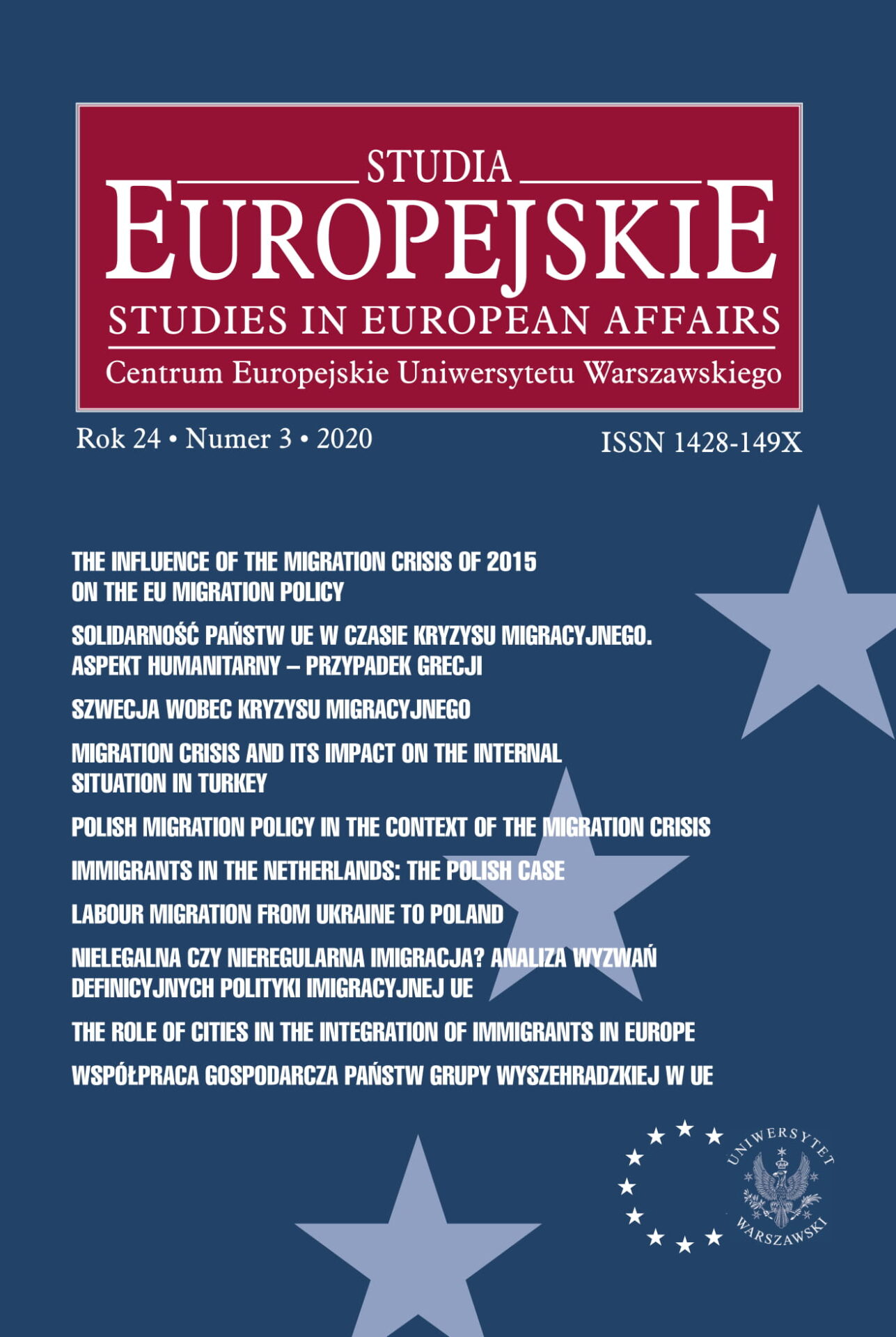The Influence of the Migration Crisis of 2015 on the EU Migration Policy
The Influence of the Migration Crisis of 2015 on the EU Migration Policy
Author(s): Marianna Gladysh, Viktor SychovSubject(s): Social Sciences, EU-Approach / EU-Accession / EU-Development
Published by: Centrum Europejskie Uniwersytetu Warszawskiego
Keywords: European Union;Common Migration Policy;Migration Crisis;
Summary/Abstract: Nowadays the European Union migration policy towards is one of the most important aspects in ensuring internal security of the EU. At the end of the XXth – beginning of the XXI century, Europe faced a new phenomenon – the intensifi cation of migration processes, namely the influxof refugees and migrants-asylum seekers from third countries. Therefore, it led to the creation and development of common migration policy ofthe European Union. In this regard, it was important to create legislation that could regulate such issues as border security and combating illegal migration, as well as to create a common asylum system. The need to study the legal framework on which the EU policy on migrants and refugees is based, and to study the current state and trends in the migration policy of the member-states of the EU has determined the relevance of this study.The importance of this topic is intensified by the European migration crisis of 2015, which is even described as a umanitarian catastrophe causedby a massive influx of refugees from Africa and the Middle East. It showed the main problems in the sphere of migration policy and policy towards refugees: imperfection of the system of delimitation of the EU competencies; a large number of countries with conflicting interests in variousspheres; fragmentation of programs in force at the national level. To address the migration crisis, the EU used a multifaceted strategy: improving and creating new migration management institutions, expanding cross regional dialogue with the countries of the Mediterranean region, Africa and the Middle East; continued to reformat the Mediterranean region (region-building). Potential approaches range from an internal search for strategies in which each member state seeks to defend its own interests (sometimes even against European integration processes) to a more farsighted approach in which member states work together to address a widerange of migration issues.
Journal: Studia Europejskie
- Issue Year: 24/2020
- Issue No: 3
- Page Range: 9-23
- Page Count: 15
- Language: English

